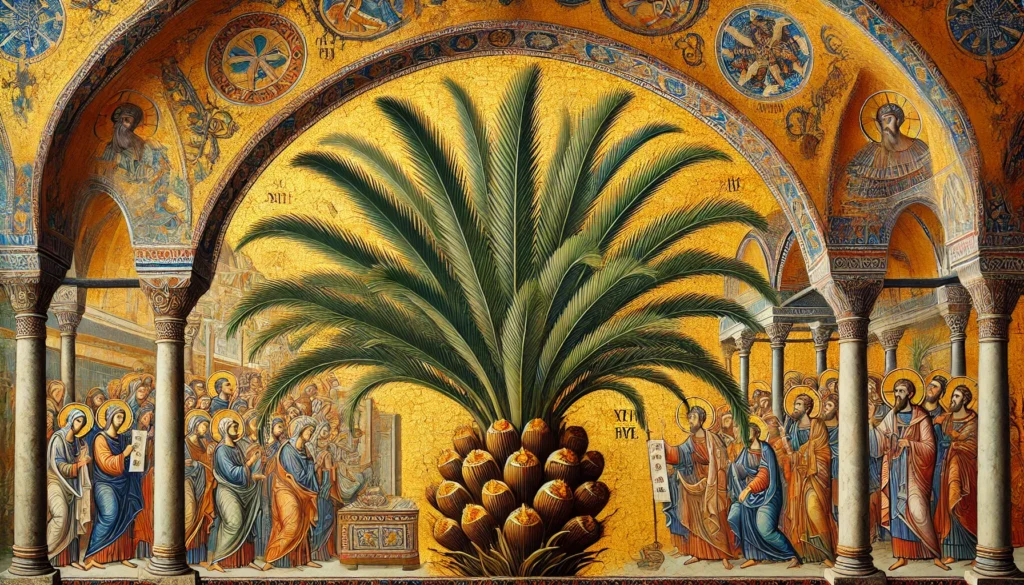

Home » Cat Plants » Is Your Cat at Risk from the Coontie Palm Plant?

Coontie palm (Zamia integrifolia), also known as coontie, Florida arrowroot, or Seminole bread, is a small, woody cycad native to the southeastern United States and the Bahamas.
While cats are not allergic to coontie palm, this plant is highly toxic to cats if ingested. All parts of the coontie palm contain cycasin, a compound that severely affects the liver and central nervous system.
The seeds or nuts are considered the most deadly part for animals. Coontie palms are commonly used as ornamental plants in subtropical and tropical areas and can often be found in landscaping and as Bonsai plants.
Ingestion may cause mild gastrointestinal upset, but is generally not life-threatening.
Ingestion can result in mild symptoms like vomiting, diarrhea, or drooling. Rarely fatal but may require veterinary care.
Eating these plants can lead to more pronounced symptoms like abdominal pain, lethargy, or difficulty breathing. Veterinary intervention may be necessary.
Ingesting even small amounts can cause severe symptoms like organ damage, seizures, or cardiac failure without rapid treatment.
All parts of these plants are extremely poisonous to cats and can quickly lead to death, even with immediate veterinary care.
** Please note: Please note that toxicity level can vary based on the amount ingested and the specific cat. It's always best to keep these plants completely inaccessible to cats and seek immediate veterinary care or call the poison hotline if you suspect your cat has ingested any part of a toxic plant.
If a cat ingests any part of a coontie palm, especially the seeds, it can experience severe symptoms within 15 minutes to several hours. Initial symptoms may include loss of appetite, increased thirst, drooling, vomiting (sometimes bloody), diarrhea (sometimes bloody), bruising of the skin, black, tarry stool, abdominal pain, jaundice, lethargy, and depression. As the poisoning progresses, later symptoms can involve the central nervous system, such as weakness, uncoordinated muscles, tremors, seizures, and coma.
If you suspect your cat has ingested coontie palm, seek immediate veterinary care. Your vet will likely perform the following diagnostic steps:
Prompt diagnosis and aggressive treatment are critical, as coontie palm poisoning has a mortality rate of about 30%, with survival rates around 50% even with immediate care.

A: Yes, cats can be allergic to Coontie Palm. Symptoms of an allergic reaction may include itching, sneezing, and skin irritation.
A: Yes, Coontie Palm is highly toxic to cats. Ingesting any part of this plant can cause severe symptoms and can be fatal if not treated promptly.
A: Symptoms of Coontie Palm poisoning in cats include vomiting, diarrhea, excessive drooling, abdominal pain, and liver failure. Immediate veterinary care is crucial if ingestion is suspected.
A: To prevent contact, ensure that Coontie Palm is not present in your home or garden. Keep your cat indoors or monitor outdoor activities closely to avoid exposure.
A: If your cat ingests Coontie Palm, contact your veterinarian immediately. Do not induce vomiting unless instructed by a veterinary professional. Immediate medical attention is necessary.
A: Coontie Palm is more commonly found in wild areas rather than home gardens. However, if you do have this plant in your vicinity, it is important to ensure it is kept out of reach of cats to prevent accidental ingestion.
Coontie palms have a long history of use by indigenous tribes in Florida and the Caribbean, such as the Calusa, Tequesta, and Seminoles.
Although highly toxic when raw, the roots could be processed to remove the poison and used as a starch source for bread and other food. Coontie was also harvested commercially for starch production in the late 19th and early 20th centuries, leading to its near extinction in the wild.
Today, coontie palms are primarily used as ornamental plants. They are the sole larval host for the rare atala butterfly, which was thought extinct until its rediscovery in the late 20th century.
Please note: The information shared in this post is for informational purposes only and should not be considered as veterinary medical advice.
🐾 A hilarious or heart-melting cat video
🐾 Our latest paws-on review of a cool cat toy